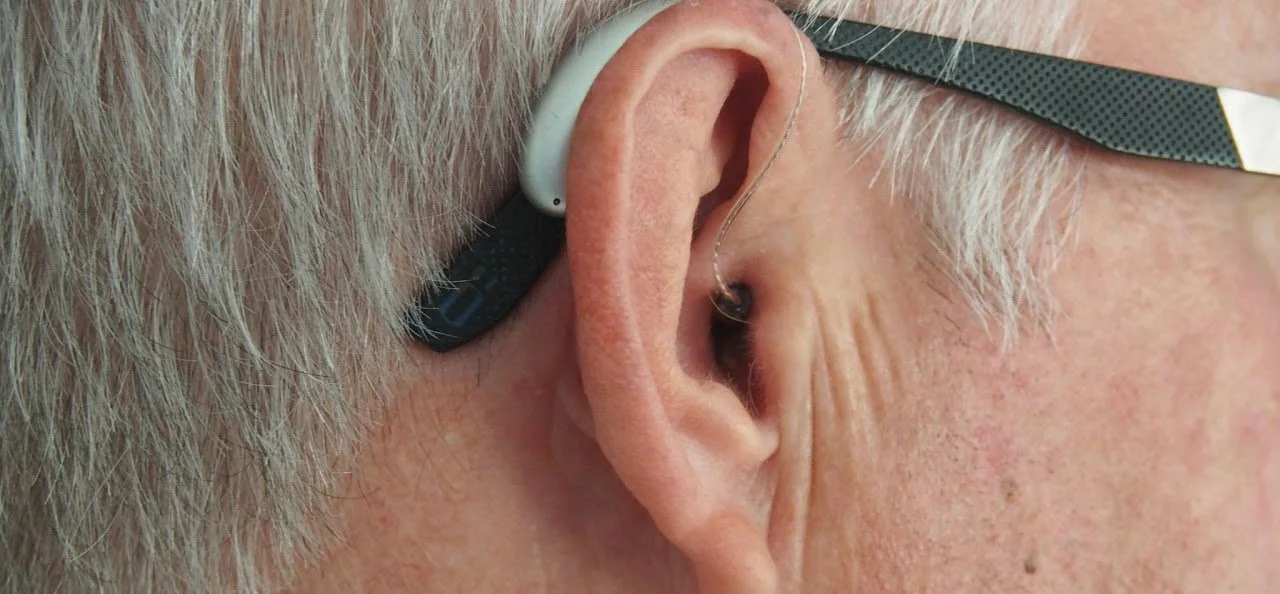Photo by Mark Paton on Unsplash.
Learning to Be Quiet
Gifted by Margaret Gapter
Gathered by Fisher Burris
Laramie, October 2024
Margaret shares the ways in which not being able to hear well has affected her life. She describes how this creates feelings of isolation as well as a stronger sense of self-reliance and resilience.
Margaret: Did you notice when they [the other storytellers] were talking, I was just sitting here, not talking?
Fisher: I did notice that, yeah.
Margaret: There was a young lady sitting here and she was just as chatty as she could be, but I couldn’t understand her words.
Fisher: Right. That must have been very hard.
Margaret: Oh, you get used to it. That’s the way I grew up. I’m sure glad you were the one that came over. A man’s voice I can hear so much better. And can you believe, with that many sisters, I was the only one that couldn’t hear? They started trying to take me when I was two or three years old, and from then on, I went to different doctors. And I went to CU up there, Colorado University, and they couldn’t find out anything. The doctors haven’t been able to find out anything. It’s just that way.
Fisher: I see. So, you mentioned that you had a hard time hearing for your whole life. Have you had hearing aids your whole life?
Margaret: Not until I was 20 years old. Somewhere around there. And I’ve had so many different kinds.
Fisher: And was that a powerful experience for you when you first got your hearing aids?
Margaret: Oh, yes. It just felt like somebody was screaming in my ear because I wasn’t used to hearing anything.
Fisher: So, do you think that growing up being hard of hearing might have affected some of your relationships that you’ve had?
Margaret: Definitely. When you can’t hear, you don’t join in. When they were all talking and visiting and having fun, I could hear conversation all around me, but I couldn’t hear a word that was being said. I can hear somebody say something very plain, and I can remark about it. And then they look at me strange, and I did it again: that’s not what they said. So, you tend to be a little more quiet.
That’s another problem. I can often pick up a little something that somebody else is saying over there, and I’m having trouble hearing who’s right here with me. Sometimes I’m in the dining room eating, and I’ll start laughing. The girls at the table want to know what I’m laughing about, and I tell them, the funny part of it is, I only heard the middle part. I didn’t hear what led up to it or the end of it. And it’s rather amusing sometimes.
Fisher: Sometimes when you’re having a conversation, does everything blend into the background?
Margaret: Always.
Fisher: Does that get hard when you’re having a conversation, and you can hear things all around it?
Margaret: It is difficult. That’s why I tend to be quiet.
Fisher: Do you think you can describe how it feels when that’s happening?
Margaret: Not really. You’re just not part of it. If you can’t hear so you know what’s being said, you tend to stay out of it. Like I said, I can hear something very plainly, and that isn’t what they said at all.
Fisher: How do you feel about your life now? What’s that like?
Margaret: Very quiet. I get up, go eat, and go back to my room. I don’t get involved in activities because I can’t see or hear, which makes it difficult. I wish I could do hobbies like they have here. They do bingo and they have crafts. Just little things. And I don’t try to get involved because if I can’t see what you’re doing now…
Fisher: Do you feel that you get left out of those things or other things because of not being able to hear?
Margaret: Oh, yes. And there’s no sense in trying to get involved because you can’t do it. But it’s been like that all my life. I’m used to not being able to do things, so I don’t try. You know what I mean? Growing up like this, you learn to be quiet most of the time. I’ve talked to you more than I’ve talked to anybody in a long time.
Fisher: Does that make you excited or sad? Is there any emotion that comes along with that?
Margaret: Oh, it gets lonesome sometimes, but I’m used to it.
Fisher: I appreciate you being friendly with me.
Margaret: I appreciate you very much.
Note: The transcript above has been condensed from its original audio recording to improve the flow and readability of the story.

